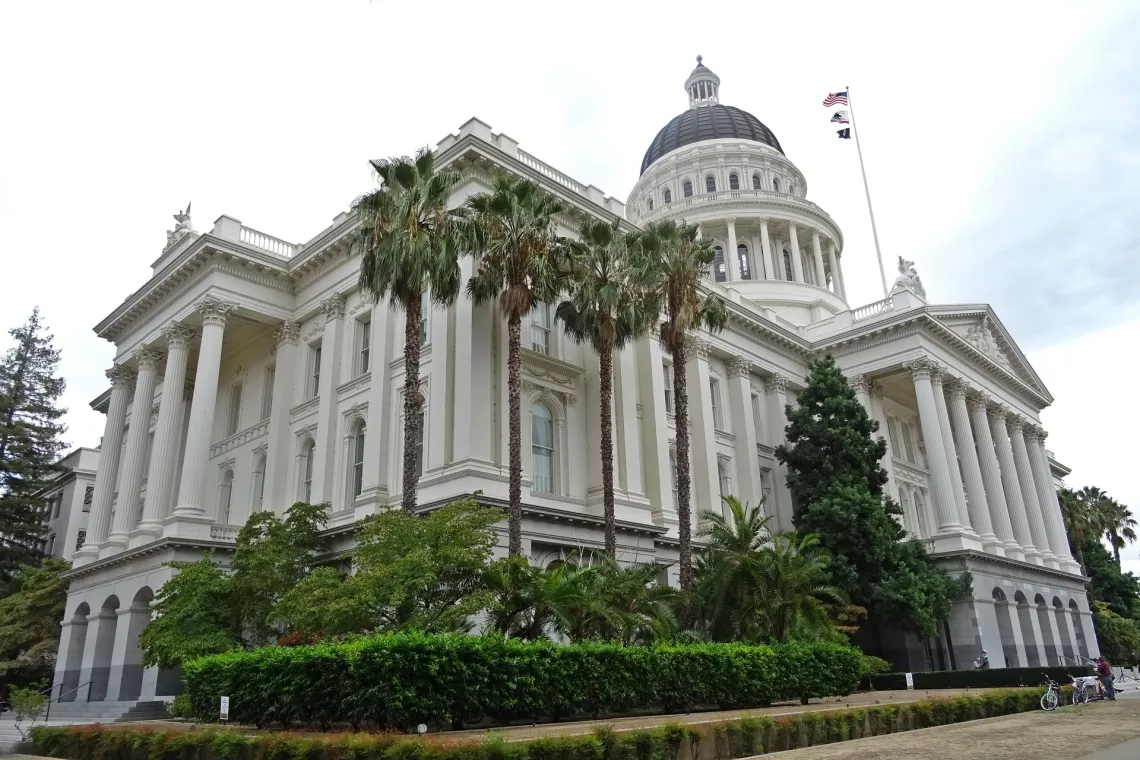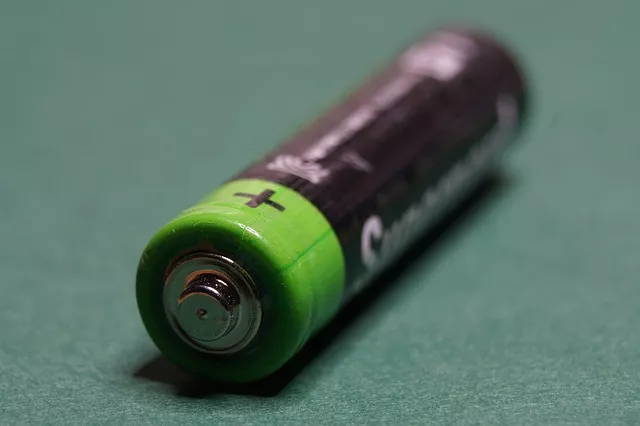
Not All Heat Waves Are Created Equal: The Deep-Seated Inequity of Climate Change
Take Action: Join Us for In-District Lobbying this Summer!
Hydrogen, Community Engagement, and You
Not All Heat Waves Are Created Equal: The Deep-Seated Inequity of Climate Change

As California swelters under the blistering summer sun, the state's residents are grappling with the harsh realities of climate change. Record-breaking temperatures, air pollution, and devastating wildfires have become the new normal. But amidst this crisis, it's crucial to acknowledge that the impact of these environmental woes is not felt equally by all. The recent heatwave has devastatingly disproportionate impacts on vulnerable populations, including the unhoused, seniors, and residents living in older homes without insulation or climate control updates, who are at higher risk of heat-related deaths due to their increased exposure to extreme temperatures and lack of access to cooling measures.
As a resident of the Inland Empire, I've witnessed firsthand the devastating impact of air pollution on our communities. San Bernardino and Riverside Counties have the worst ozone pollution in the country. The American Lung Association describes ozone exposure as a sunburn on your lungs and ozone levels increase with rising temperatures. Fighting to breathe clean air becomes a daily battle with long-term health implications. The climate crisis is a health justice issue, and for outdoor workers it is also an economic justice issue. For the caregivers and families of aging parents, children, and disabled people, climate change is a social justice issue. Sierra Club California understands that addressing the harms of the climate crisis is fundamentally about environmental justice.
The Sierra Club's 2030 Strategic Framework guides our work towards antiracism, balance, transformation, collaboration, and justice. Environmental justice demands that we address the disproportionate burden of pollution and climate change on vulnerable communities.
California has made strides in enacting laws that promote environmental justice, such as bills like SB 535, AB 1550, AB 617, and SB 1000, as well as policy set forward by the Office of the Attorney General's Bureau of Environmental Justice established in 2018. These laws ensure that disadvantaged communities have a seat at the table when decisions are made about environmental policies and regulations.
Taking on the role of Acting Director of Sierra Club California was a deeply personal decision for me. I have experienced the impacts of pollution and environmental degradation firsthand in my own community. I understand the urgent need for change as a member of those vulnerable populations and marginalized communities, but I am not alone. There are countless voices across the state for whom environmental justice is not just a moral imperative but a necessary step towards a just and equitable society, and Sierra Club California is the entity bringing those voices to the Capitol.
Together, we can make a difference in fighting the climate crisis by prioritizing equity, transformation, anti-racism, collaboration, and justice, and we can build a more sustainable and more equitable future for all. I am excited to lead Sierra Club California in this critical moment. We can and will push for bold policy reforms, mobilize public support, and empower community voices to demand a better future for all by building from the leadership of our members, our grassroots partners, and climate leaders in the Capitol.
Join the movement: Get involved with Sierra Club California’s work and your local chapter. Stay informed about efforts to promote environmental justice in our state. Support our work with your contribution. I look forward to being your voice for the environment at the state’s capitol.
Take Action: Join Us for In-District Lobbying this Summer!

In-District Lobbying is back for the July legislative recess! Legislators are in their home districts from July 4th through August 5th and available to meet with constituents to hear from constituents like you about the issues that matter most. Sierra Club California is geared up to work with volunteers across the state’s thirteen local chapters to inform their legislators about Sierra Club California’s policy priorities as constituent lobbyists.
This spring we made significant progress on two water bills with groups of volunteers across California successfully set up meetings with their legislators to advocate for Sierra Club California’s position. Our in-district lobbyists helped push for AB 460 and AB 1337, which would empower the State Water Resources Control Board to act against wasteful water usage and deliver water more equitably in times of drought.
We faced stiff opposition from water districts, but together, we persisted and achieved some major wins. Volunteers met with four senators, delivered informational material to four others, and confirmed that these bills would not face a second vote in the Assembly Water, Parks, and Wildlife Committee and would move forward. AB 460 emerged from its policy committee hearing with substantial amendments and we are now expecting it to pass through the Senate with ease. Thank you to our volunteers who gave their time and energy to promote these bills to their legislators!
Now is your chance to make a difference! This summer, we’re lobbying for four additional bills on topics including oil and gas, building decarbonization, wildlife, and water. By joining our in-district lobbying efforts, you'll have the opportunity to provide critical insights to our policy staff on how legislators are feeling about key bills, helping us tailor our advocacy efforts to maximize impact. If you’re interested in helping the efforts to support these key environmental priorities, join us for in-district lobbying! Sign-ups are free and open to all Sierra Club members. Join us today! Visit our website here for more information and sign-up here.
Hydrogen, Community Engagement, and You
By Gabriela Facio and Jakob Evans

California is an epicenter for investments in hydrogen energy production as the Alliance for Renewable Clean Hydrogen Energy Systems (ARCHES) Hydrogen Hub capitalizes on federal and state funding for hydrogen projects. This summer, the Department of Energy (DOE) is expected to announce funding for 37 local hydrogen projects across California. As the hydrogen energy industry gears up in response to this funding, it’s important that legislators hear from the frontline communities that stand to be affected by these projects.
Sierra Club California has previously highlighted opportunities to engage with ARCHES as their funds continue to be distributed. Earlier this year, ARCHES released a proposal outlining their approach to stakeholder engagement for their project development. However, this proposal doesn’t go far enough in engaging local communities. Sierra Club California and our allies have expressed strong concerns to ARCHES’ community benefits team, and urged them to enhance transparency by providing clear details on how the expected projects will impact frontline communities. Not all hydrogen projects are created equal, and different proposals will affect frontline communities in disparate ways.
As ARCHES moves forward with these projects and its commitment to community engagement, it is crucial that their efforts are grounded in transparency, especially because of the potential health and safety impacts from these projects.
These concerns regarding community impacts of hydrogen production underscore broader environmental considerations. Hydrogen energy is not a widely applicable energy source. Its production is costly, and is often tied to investments in fossil fuel infrastructure. Hydrogen projects have potentially significant harmful effects on local communities, which makes them a risky pathway to pursue carbon emission reductions. However, hydrogen energy does have plenty of potential in difficult-to-decarbonize sectors, such as long-haul trucking, shipping, manufacturing, and high-heat industrial processes, where its benefits will be maximized and potential harms minimized.
Clean hydrogen could present important solutions to some of the largest challenges on the road to carbon neutrality in California. However, its production must be pursued while meeting the needs of the communities that will bear the brunt of its health and safety impacts. This means transparent communication between project developers, ARCHES, and local communities to ensure the health and safety of communities across California. Stay tuned for future opportunities to make your voice heard on this important issue.
Follow Us:
  |
Thank you for being a part of our work! Consider making a monthly donation. You may securely donate online or by sending a check to Sierra Club California at 909 12th Street, Suite 202, Sacramento, CA 95814.
